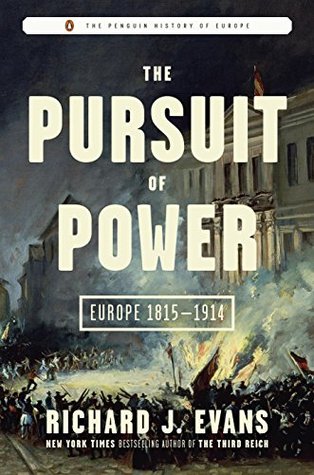More on this book
Community
Kindle Notes & Highlights
Started reading
January 1, 2024
As a result, the post-Napoleonic settlement paid as much attention to preventing revolution, and repressing it where it seemed to be taking place, as it did to curbing whatever the military and political ambitions of France might threaten to be in the future.
Everywhere that Napoleon ruled he had replaced encrusted custom and privilege with rationality and uniformity.
Everywhere Napoleon had brought change, and as he departed for his final exile on St Helena in 1815, it was clear that much of it could not be reversed.
Between 1811 and 1824 the Spanish Empire in the Americas was destroyed.
towns. In many parts of Europe, the influence of Napoleon had created greater efficiency in administration and the vital arts of troop recruitment and tax-gathering that went hand in hand with measures to stimulate economic production, allowing entrepreneurs to accumulate wealth for themselves and their families so long as they paid their dues to the state.
Military efficiency was thus linked productively to economic growth in ways that the restrictive and rapacious state economic policies of China or the Ottoman Empire did not allow.
Above all, perhaps, it was European, and as a result of the wars, overwhelmingly British command of the seas that provided the basis for the new, dominant relationship o...
This highlight has been truncated due to consecutive passage length restrictions.
Arbitrariness always accompanies despotism, and Russia was no exception.
Frederick the Great of Prussia (1712–86) had described wars between Russia and Turkey as the one-eyed fighting the blind
‘My most secret thought,’ wrote Prince Metternich in 1829, ‘is that old Europe is at the beginning of the end. Determined to go down with it, I will know how to do my duty.’
The genie was out of the bottle, and it was impossible to put it back.
Thinkers like Joseph de Maistre (1753–1821), building on the critique of the French Revolution by the Irish politician Edmund Burke (1729–97), argued that stability could only come from the general recognition that monarchy wielded an absolute power ordained by God. People thus had to obey or face the consequences.


